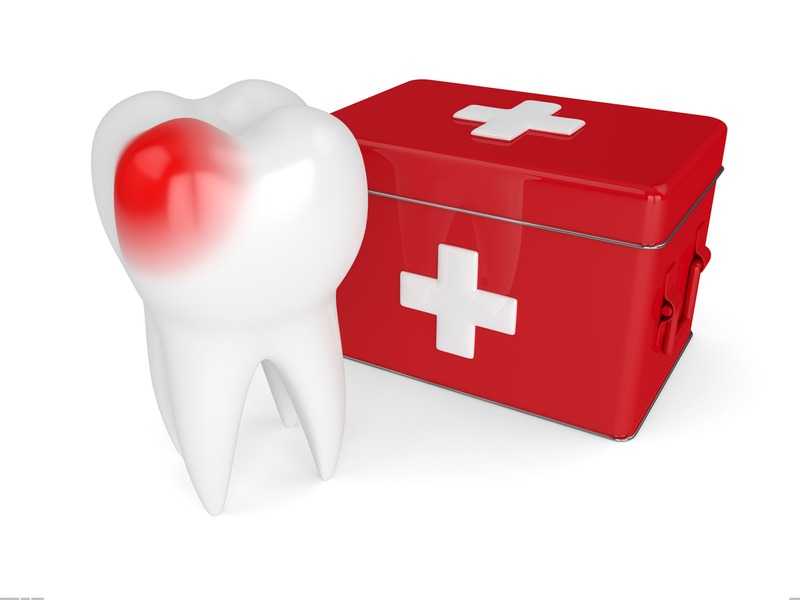Staying calm is key in a dental emergency. If a tooth is broken, rinse your mouth with warm water and apply a cold compress to reduce swelling. If you have a severe toothache, gently floss to remove debris and rinse with warm salt water. Avoid aspirin and see a dentist promptly. If a tooth is knocked out, try to place it back in its socket or keep it in milk until you reach a dentist. For more serious injuries, seek immediate professional care to prevent complications and ensure proper treatment.
Assessing the Situation
The first thing to do in a dental emergency is to stay calm and assess the situation. Understanding the severity of the problem will help you decide whether you need immediate professional intervention or if you can manage the situation temporarily at home. Look for signs of swelling, bleeding, or intense pain that might indicate the need for urgent care.
Common Dental Emergencies
Several situations are classified as dental emergencies. These include:
-
Broken or Chipped Tooth: Often caused by accidents or biting down on something hard.
-
Knocked-Out Tooth: Requires immediate action to save the tooth potentially.
-
Severe Toothache: This can be a sign of infection or a cavity.
-
Lost Filling or Crown: This can lead to discomfort and further damage.
-
Abscess: A serious condition that can result in significant pain and swelling.
First Aid at Home
While waiting for professional help, you can do a few things to manage pain and prevent further complications. For a toothache, rinse your mouth with warm water and use dental floss to remove any lodged food particles. Applying a cold compress can reduce swelling caused by a broken tooth. If a tooth is knocked out, try to place it back in the socket without touching the root or store it in milk until you reach a dentist.
The Role of Pain Management
Dental pain can be intense and can disrupt your daily life. Over-the-counter pain relievers, such as ibuprofen, can help manage the pain temporarily. However, avoid putting aspirin directly on your gums, as this can cause burns. Remember to follow the dosage instructions on the package or as advised by a professional.
Recognizing Dental Emergencies
Understanding when to visit dentist is crucial during a dental emergency. If you experience a severe toothache that doesn’t subside with over-the-counter medication, or if a tooth is broken, chipped, or dislodged, seek professional help as soon as possible. Timing is key to managing a situation effectively and preventing further complications.
Preparing for Dental Emergencies
Do some research in advance to find a trusted emergency dentist Houston. Having a go-to professional or clinic can save precious time during an emergency. Check their availability, hours, and services provided so that you know exactly where to go or whom to call when an emergency arises.
Caring for a Knocked-Out Tooth
If you ever have a knocked-out tooth, handle it carefully by the crown, avoiding the root. If possible, try to insert it back into the socket. If you can’t, keep it in a container of milk until you reach professional help. Quick action often increases the chances of saving the tooth.
Managing a Lost Filling or Crown
Losing a filling or crown can be very uncomfortable. Covering the affected area with dental cement or sugar-free gum can act as a temporary fix until you receive professional care. Avoid chewing on that side of your mouth to prevent damage or irritation.
Addressing Dental Abscesses
A dental abscess is a potentially serious condition resulting in severe pain, swelling, and sometimes fever. It needs prompt attention, as it can lead to further complications. Using a cold compress and warm saltwater rinse can help alleviate symptoms until you receive professional treatment. Remember, an abscess requires prompt, professional attention to avoid the spread of infection.
Preventive Measures for Protecting Teeth
Prevention is better than cure. Using a mouthguard during sports and avoiding hard foods can prevent many dental emergencies. Regular check-ups and cleanings can also identify potential issues before they become emergencies. Don’t overlook dental care because maintaining good oral hygiene is key to preventing problems.
Exploring Tooth Bridge for Lost Tooth
If you’ve lost a tooth, considering options like tooth bridge treatment Houston can help restore your smile and prevent further oral health problems. This treatment can greatly enhance not just the aesthetic aspect but also the functionality of your teeth.
Long-Term Dental Care
Once the immediate emergency is managed, it’s important to think about long-term dental care. Follow-up appointments, proper oral hygiene, and addressing any underlying issues are vital to ensuring such emergencies don’t recur. Consistency in dental care often results in lesser chances of encountering emergencies.
Final Thoughts
Dental emergencies are unexpected, and knowing how to respond to them is essential. Start by assessing the situation; determine if immediate first aid is needed, like stopping bleeding or reducing pain. Seek professional help promptly to prevent complications.
Understanding and applying preventive measures, such as wearing mouthguards during sports or avoiding hard foods, can reduce risks. Being prepared and informed ensures you tackle dental issues effectively, preserving your oral health.

